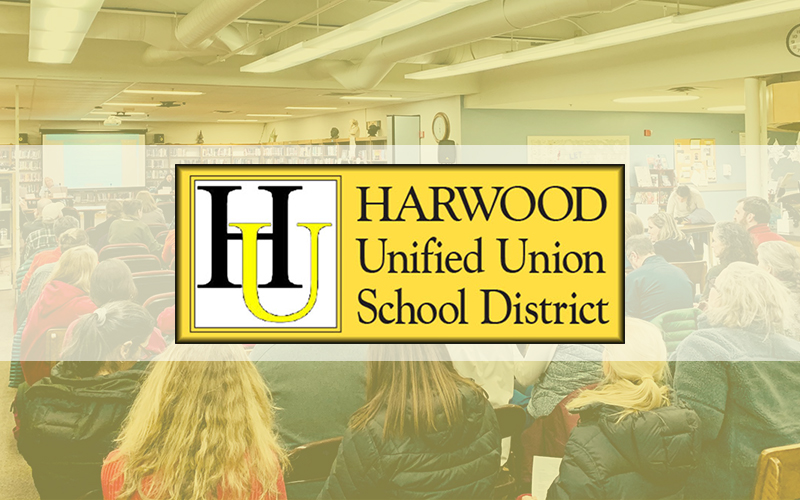The Harwood Unified Union School District (HUUSD) Board has officially cast its second budget out into the waters of public scrutiny and is hoping that this time the voters will bite. At a school board meeting on May 21 the board approved a motion to warn a special election for June 16, 2020, for the FY21 budget of $39,751,941. It also voted to reimburse the costs of the special election to the towns within the district, that is, to reimburse them for the extra cost of postage associated with mail-in ballots.
Note that the number of the budget above is not the same number that was presented on Town Meeting Day. In fact, it’s $20,401 less. This reduction is associated with the reduction of one full-time instructional assistant for special education.
The vote to approve the warning of this $39,751,941 budget passed in a weighted vote of 83.45% to 6.7%, with only one board member voting against it. “Please call or email your town clerk to request a ballot,” said Caitlin Hollister to the public after the warning was approved.
IMPROVING IDC POLICY
In addition to approving a new budget for warning, the board also discussed how to improve its intradistrict choice (IDC) policy, which allows students to attend another school in the district other than their own. Under current IDC guidelines, a school must accept any IDC request as long as the receiving school has room. This rule poses a problem to schools that are being pushed to capacity by an influx of IDC applications (like Crossett Brook Middle School) as well as schools with increasingly depleted class sizes from students transferring out via IDC (like Fayston Elementary School).
While the board didn’t vote on any specific IDC policy changes, board members discussed ways to improve the IDC process. For instance, the board discussed adding a section to the IDC application that asks parents and students about the student’s motivation to transfer. “We need information about why they’re leaving one school and choosing another,” said Kelley Hackett, Waterbury.
Additionally, board members discussed changing IDC’s first-come, first-served acceptance policy to a lottery system. “I don’t love first come, first served. I prefer a lottery,” said vice chair Torrey Smith. Board member Theresa Membrino, Fayston, followed up with support for both discussion points. “I agree with the lottery and information collection,” she said.
Finally, the board discussed plans for a preK-12 configuration for 2021. “PreK-12 is the elephant in the room,” said Christine Sullivan, Waitsfield, pointing out that while school closings and a middle school merger won’t happen this year, they very well may happen next year.
MIXED OPINIONS
Board members had mixed opinions on how the board should go about planning changes in the preK-12 configuration for next year. Alex Thomsen, Waterbury, said if facilitating a middle school merger is the board’s intent for 2021, the board needs to start planning now. “We are going to end up in the exact same position as last year if we don’t do something sooner rather than later,” she said.
Jeremy Tretiak, Waitsfield, warned of the ramifications of attaching a budget to a school configuration and strongly advocated, like Thomsen, that the board start working on the design aspects of a new configuration as soon as possible in order to avoid conflating a merger with the budgeting process.
In response to Tretiak, Sullivan reminded the board that the decision to change school configurations is inherently financial. The goal is to save money while preserving programming. “The way that we got to adopting the budget that we did for Town Meeting Day was because we could preserve programming and save a lot of money,” said Sullivan. “This might be the basis of our budget process.”
Other board members, like Jonathan Clough, Warren, were primarily concerned with board transparency and voter communication. Clough said that if the board is going to start configuration-based discussion now, it needs to engage the public in these discussions. “We need to hold public meetings earlier rather than later so we can do the appropriate democratic rumination,” said Clough.






